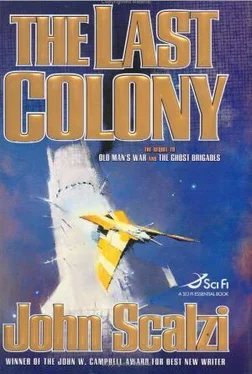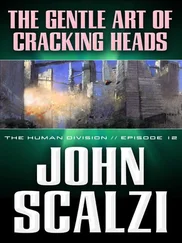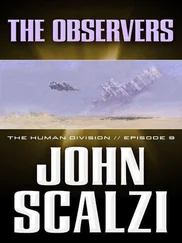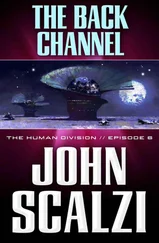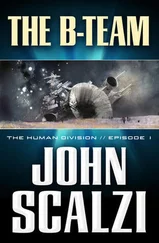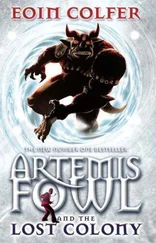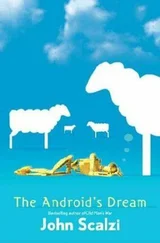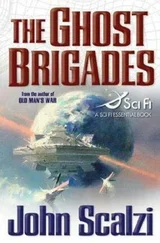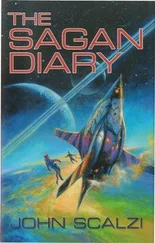Which is not to underestimate territorial disputes. A human colony is exponentially more likely to be attacked in the first two or three years of its lifespan than it is at any other point in time. The colony is focused on creating itself and is vulnerable to attack. The Colonial Defense Forces' presence at a new colony, while not insignificant, is still a fraction of what it will be once a space station is built above the colony a decade or two later. And the simple fact that someone has colonized a planet makes it rather more attractive to everyone else, because those colonists have done all the hard work of colonization for you. Now all you have to do is scrape them off the planet and take it for your own.
Landing a hundred thousand colonists on a planet just to have them scraped off it is also a waste of perfectly good colonists. And despite the Colonial Union essentially farming Third World countries on Earth for colonists, if you start losing a hundred thousand colonists every time a new colony fails, eventually you run short of colonists.
Fortunately there is a happy medium between these scenarios. It involves taking twenty-five hundred or so colonists, landing them on a new world in the early spring, providing them sustainable and durable technology to address their immediate needs, and giving them the task of becoming self-sufficient on the new world, and of preparing the world, two or three years down the line, for roughly ten thousand more new colonists. Those second wave colonists will have another five years or so to help prepare for fifty thousand new colonists, and so on.
There are five formal and initial waves of colonists, by which time the colony ideally has a population of a million or so, spread out over numerous small towns and one or two largish cities. After the fifth wave becomes established and the colony's infrastructure is established, everything switches to a rolling colonization process. When the population reaches ten million or thereabouts, immigration stops, the colony gets limited self-rule within the CU federal system, and humanity has another bulwark against racial extinction at the hands of a callous universe. That is, if those initial twenty-five hundred survive a hostile ecosystem, attacks from other races, humanity's own organizational shortcomings and simple, ever-present damn bad luck.
Twenty-five hundred colonists are numerous enough to start the process of making a world a human world. They are few enough that if they die, the CU can shed a tear and move on. And, indeed, the tear-shedding part of that is strictly optional. It's an interesting thing, to be both critical and expendable to humanity's effort to populate the stars. On the whole, I thought, I might have been smarter to stay on Huckleberry.
"All right, I give up," I said, pointing to the massive container that was being maneuvered into the cargo hold of the Ferdinand Magellan. "Tell me what that is."
Aldo Ferro, the cargo foreman, checked the manifest on his PDA. "That contains all the mixin's for your colony's sewage treatment plant," he said, and pointed at a row of containers. "And those are your sewer pipes, septic tanks and waste transports."
"No outhouses for Roanoke," I said. "We're going to poo in style."
"It's not a matter of style," Ferro said. "You're going to a class-six planet, complete with a noncompatible ecological system. You're going to need all the fertilizer you can get. That sewage treatment system will take all your biological waste, from crap to carcasses, and make sterile compost for your fields. It's probably the single most important thing you have on this manifest. Try not to break it."
I smiled. "You seem to know a lot about sewage," I said.
"Yeah, right," Ferro said. "More like I know about packing a new colony. I've been working in this cargo hold for twenty-five years, and we've been transporting new colonies all that time. Give me a manifest and I can tell you what sort of planet the colony's going to, what its seasons are, how heavy its gravity is and whether that colony is going to make it through its first year. You want to know how I knew your colony had a noncompatible ecosystem? Besides the sewage plant, I mean. That's standard on any colony."
"Sure," I said.
Ferro tapped something on the PDA screen and handed the screen to me, with a list of containers. "Okay, first off," Ferro said. "Food stores. Every colony ships with a three-month supply of dry goods and basic foodstuffs for every member of the colony, and another month supply of dry rations, to allow the colony time to start hunting and producing its own food. But you have a six-month supply of foodstuffs and two months of dry rations per colonist. That's the sort of load out you see for a noncompatible ecosystem, because you can't eat off the land right away. In fact, it's actually more than usual for an NCE; usually there's a four-month supply of dry goods and six weeks of rations."
Why would they give us more food than usual?" I asked. I actually knew the answer to this—I was supposed to be running the colony after all—but I wanted to see if Ferro was as good as he thought he was.
Ferro smiled. "Your clue is right in front of you, Mr. Perry, you are also shipping with a double load of soil conditioners and fertilizers. That tells me the soil there is no good, as is, for growing human food. That extra food buys you time if some idiot doesn't condition a field properly."
"That's right," I said.
"Yup'" Ferro agreed. "Final thing: You've got more than the usual load out in your medical supplies for poison treatment, which is typical for NCEs. You've also got a hell of a lot of veterinary detoxifiers, too. Which reminds me," Ferro took back the and pulled up a new list of containers. "Double load of feed for your livestock."
"You are a master of manifests, Ferro," I said. "You ever think of colonizing?"
"Hell no," Ferro said. "I've seen enough of these new colonies go out to know that some of them don't make it. I'm happy to you up and load you out and then wave good-bye and come home to Phoenix to my wife and cat. No offense, Mr. Perry."
"None taken," I said, and nodded to his manifest. "So, you said you can tell from a manifest whether a colony is going to make it. How about us?"
"You're loaded for bear," Perro said. "You're going to be fine. But some of your stuff is a little weird. There's stock on your manifest I haven't seen shipped before. You've got containers full of obsolete equipment." Ferro handed back the manifest to me.
"Look, you have everything you need for a blacksmith's shop. In 1850.I didn't even think this stuff existed outside a period recreation fair."
I looked at the manifest. "Some of our colonists are Mennonites," I said. "They prefer not to use modern technology if they can avoid it. They think it's a distraction."
"How many of your colonists are whatever it is you just said?" Ferro asked.
"About two hundred, two hundred and fifty," I said, handing back the PDA.
"Huh," Ferro said. "Well, then, it seems you're pretty much prepared for everything, up to and including time travel back to the Wild West. If the colony fails, you can't blame it on the inventory."
"So it'll be all my fault," I said.
"Probably," Ferro said.
"I think the one thing we can all say is that we don't want to see this colony fail," said Manfred Trujillo. "I don't think we're in danger of that. But I do worry about some of the decisions that have been made. I think they make things more difficult."
Around the conference table was a round of nods. At my right, I saw Savitri take notes, marking which heads were nodding. On the other end of the table, Jane sat impassively, but I knew she was counting heads, too. She was in intelligence. This is what she does.
We were coming to the close of the inaugural official meeting of the Roanoke Council, which consisted of me and Jane as the colony heads, and the ten representatives of the colonists themselves, one for each world, who would act as our deputies. Theoretically, at least. Here in the real word, the jockeying for power had already begun.
Читать дальше
